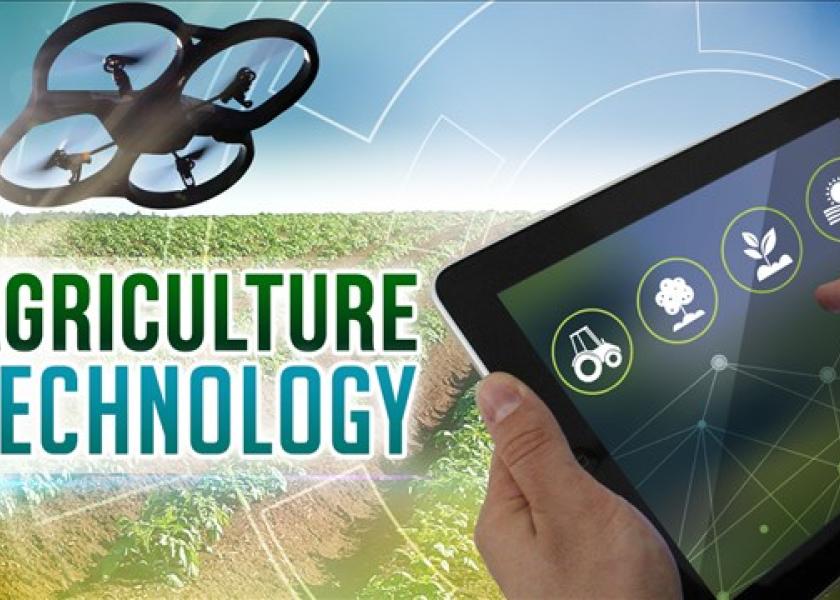Troubles With Technology? Who Are You Going To Call?

Even though I wasn’t there in person, it was an amazing thing to watch.
This spring, a particular planter I was watching—albeit remotely via real-time telematics—was literally breaking the seeding speed limit without consequence. I was watching the pinnacle of precision agriculture technology in action.
The planter—60' wide with 36 rows at 20" row spacings—was equipped with nearly $120,000 of advanced precision “accessories” on top of its $200,000-plus OEM factory price tag. With its high-speed planting system, sophisticated row-by-row hydraulic down pressure and more sensors than the latest Mars rover, its capabilities simply boggle the mind. It can plant corn at 10 mph—twice the speed of a normal planter—and do a better job of putting seed in the ground with singulation scores of 99% and above. And talk about getting it done—averaging nearly 500 acres a day without even breaking a sweat!
It is all well and good to be able to soak in the prowess of today’s precision technology. But then again, I keep having this flashback to simpler times when the entire scope of precision farming was defined by just three things: the yield monitor, the GPS lightbar and variable-rate fertility. As capabilities have grown so have the complexities of the equipment and also the expectations from the end users.
For those of us tasked with keeping these sophisticated machines speeding across fields, it’s increasingly becoming a heavy burden. We all dread that Apollo 13 moment. The “Houston, I have a problem” call that invariably comes at 4:59 p.m. on Friday. Today’s precision technology has to work. It is no longer a luxury. No longer can you just put down the markers and plant old-school. Farming—regardless of the size or scale—doesn’t work that way anymore.
It has been said before, and we already may be past the boiling point, but the ag industry desperately needs a nationwide ag tech “Geek Squad” initiative. We already lack enough “boots on the ground” to adequately support the technology that’s currently deployed, and we’re light-years from being able to handle what’s coming.
It is time for the industry to pivot to a more service-based model rather than rely so heavily on just selling the widgets. Some analysts will say the early trek of the direction of precision agriculture in many ways parallels the information technology (IT) segment of our economy. For those who lived through the “computer revolution” of the ’80s, who could forget those boring beige boxes called PCs? They would breed like rabbits. They were everywhere. A majority of those boxes were made by IBM or “Big Blue.”
Big Blue and other PC manufacturers sold enough of the boring beige boxes that those boxes eventually became almost a worthless commodity. Many computer manufacturers either went broke or nearly broke in chasing the race to the bottom to build the cheapest PC. Even though IBM played the same game, it was smart enough to call an audible that probably ended up saving the company.
You see, today’s IBM is not your father’s IBM. The firm made the pivot to IT services and transformed itself from a heavily hardware-based company into a serious services company where the margins are much, much better. IT hardware still plays a critical role in IBM’s mission, but it represents only a fraction of the company’s overall revenue that it once did.
Today, IBM sells everything from IT maintenance, cloud systems and storage services and a multitude of software as service products. One such example of its diversification is that it now owns a company called The Weather Company, which is the company behind the Weather Channel and Weather Underground—two very familiar names in the agriculture universe. IBM also has a supercomputer network called Watson that can beat the world’s best human chessmasters and will probably be the backbone behind the company’s blockchain initiative. Ironically, blockchain is poised to have huge implications for agriculture.
The bottom line here is that in order for precision agriculture to progress and be sustainable, it needs to pivot—much like IBM did after the PC boom and bust. In order to do that, the precision industry must move from its hardware-heavy mentality. Second, precision tech end users—i.e. farmers and ag retailers—also must be willing to pay for such services. That may be the toughest pill to swallow because in many ways precision ag services have been and continue to be devalued by the overall ag industry.
But in order for agriculture to benefit from the next wave of precision—the cloud, artificial intelligence, robotics, the internet of things and big data—it is going to take an army. It’s time to start recruiting. Spread the word. Agriculture’s future may depend on it.







